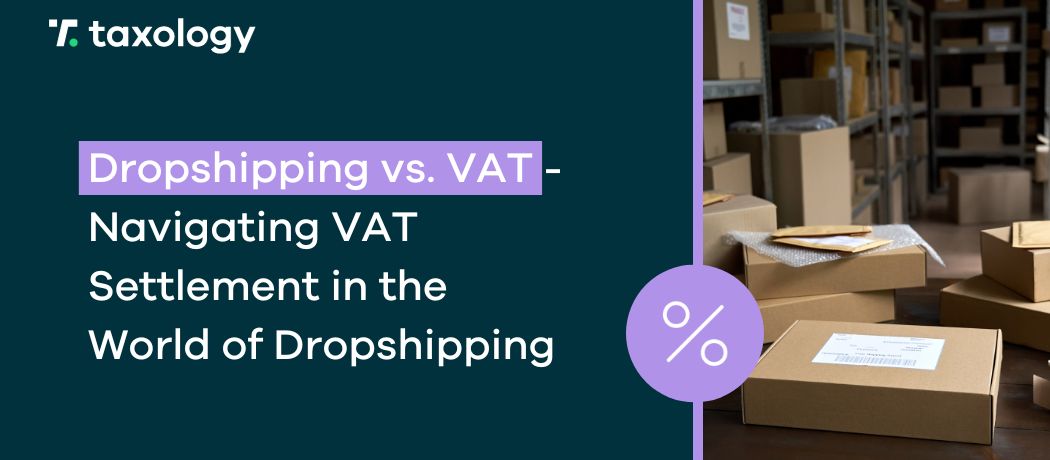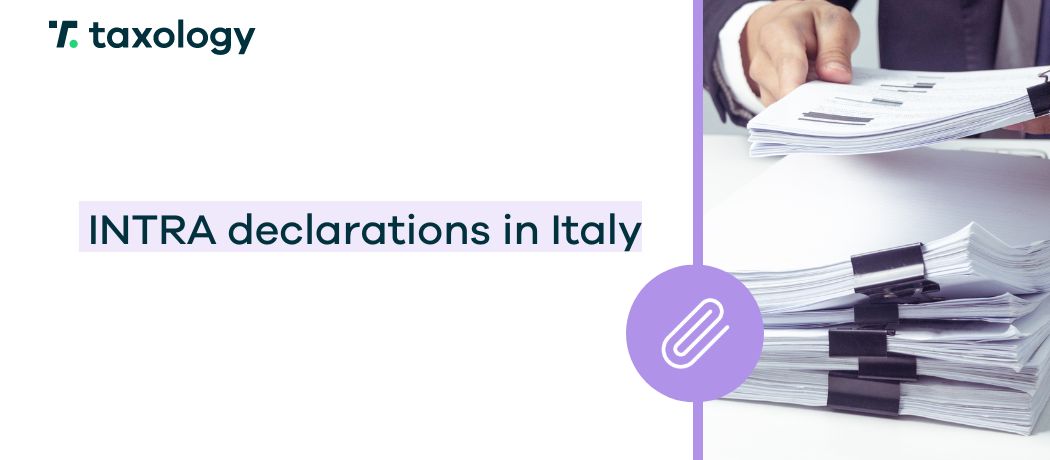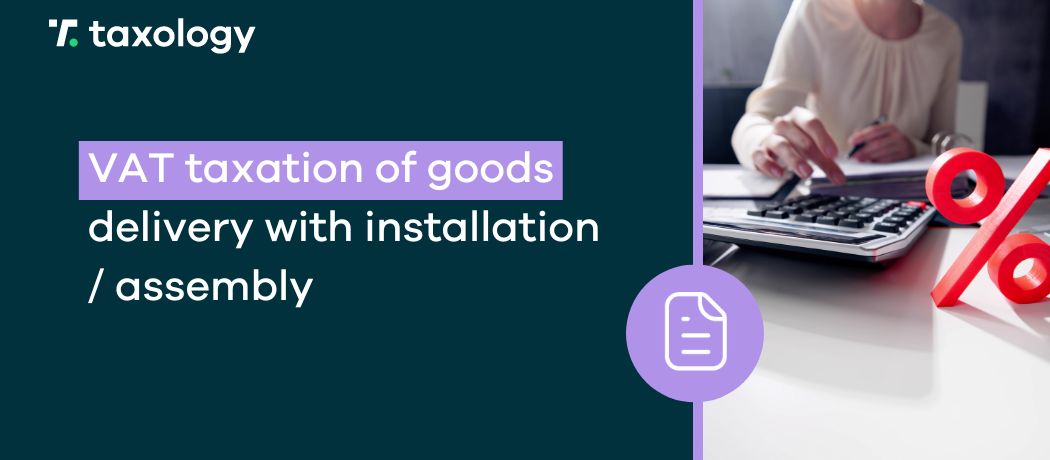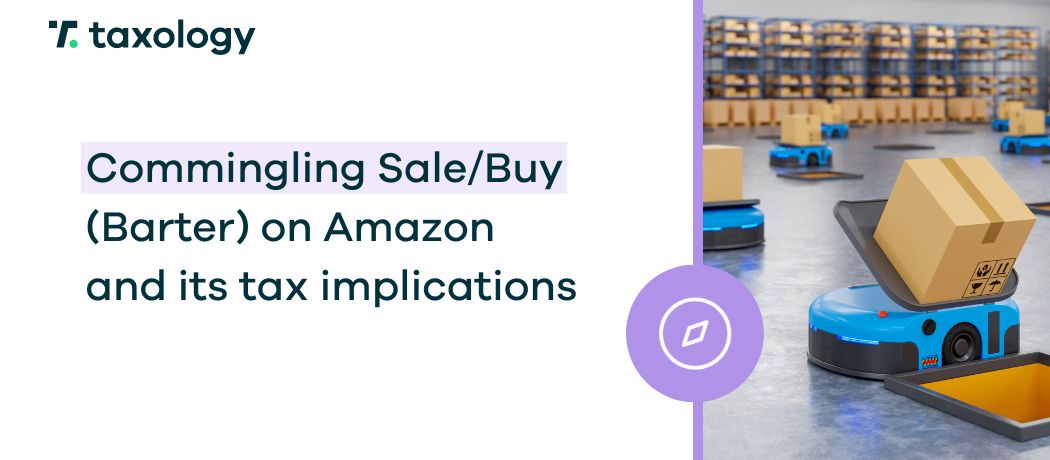Italy ranks as the fourth largest e-commerce market in Europe in terms of value. It is no surprise, then, that it attracts entrepreneurs looking to expand in this direction. However, […]
Read in: 4 minDropshipping vs. VAT – Navigating VAT Settlement in the World of Dropshipping
- Last update: 23.02.2024
- Published: 26.09.2023
- Read in: 7 min
Dropshipping has emerged as a popular business model, enabling entrepreneurs to sell products without the need for physical warehousing. This approach empowers online stores to offer a diverse range of products without the requirement of investing in purchasing or storing them. Nevertheless, like any business venture, dropshipping is subject to specific legal and tax regulations.
One pivotal aspect that requires in-depth understanding for all dropshippers revolves around VAT, an integral element of this sales model, which we delve into in the following article.
Nevertheless, it’s essential to stress from the outset that consulting with a VAT specialist is recommended for any dropshipping operation, ensuring accurate handling of billing and tax-related matters.

From this article you will find out:
- What is dropshipping?
- What are the dropshipping sales models?
- What factors determine VAT settlements in dropshipping?
- How to settle VAT from dropshipping?
- Can taxpayers exempt from VAT engage in dropshipping?
What is dropshipping?
Dropshipping is a business model designed for the sale of products, wherein it entails the intermediation of online sales or the resale of products initially acquired by the dropshipper. These products are then sent to the final customer through the distributor or manufacturer.
Two Methods of Conducting Dropshipping
Dropshipping can employ a specific approach for selling products, which includes:
- Commercial Intermediation (Commission Model): This approach entails acting as an intermediary between the customer and the manufacturer or distributor. In this scenario, the intermediary initially gathers customer orders and subsequently forwards them to the entity that owns or produces the goods. The primary focus of the intermediary’s role here is providing intermediary services.
- Selling Goods on One’s Own Behalf (Dropshipping Model): This model involves the intermediary first procuring goods and then selling them directly to the end customer. In this case, the focal point of the intermediary’s role is the goods that they own.
It’s important to emphasise that in both of these approaches, profit is generated from the margin between the wholesale and retail prices. Neither model involves the dropshipper maintaining their own inventory, as the goods are shipped directly from the distributor or manufacturer.
VAT settlements from dropshipping
Now, let’s explore the VAT settlement process in dropshipping. The taxation rules are influenced by the choice of dropshipping model. Additionally, the method of VAT settlement is also determined by the parties involved, whether they are private individuals (B2C) or businesses (B2B), and the location of purchase, sale, or service provision, which can occur within EU member states or in third countries.
Commercial intermediation model
When operating as an intermediary, correctly determining the place of taxation for the intermediary service is vital, and this is closely tied to the customer’s status.
If the service recipient is a VAT-registered entity, the intermediary service’s taxation should take place in the customer’s country of establishment or its place of permanent business operations. Consequently, when intermediary services are provided to VAT-registered foreign entities, the VAT invoice should include the term ‘reverse charge,’ and the recipient becomes responsible for settling the VAT in such cases (with no VAT specified on the invoice).
The situation changes when sales are made to private consumers (with commissions charged to the buyers of goods). In such cases, the taxation of this transaction, which involves an intermediary service, occurs in the country where the service provider (intermediary/dropshipper) is registered, regardless of the destination of the goods.

Need help with VAT?
Leave it to the professionals! Whether it’s about settlements, declarations, registrations, VAT OSS or VAT EU! Give us a call and see what our VAT Compliance specialists can do for you!
Schedule a consultationThe model of selling goods under your own brand
The method used for the taxation of goods sales depends on several factors, including the location of the goods during shipment, the destination country, and the status of the buyer (whether they are an individual or a VAT-registered entity).
For example, in cases where sellers dispatch goods from Poland to customers in other EU countries, they should adhere to regulations akin to those in traditional online sales. Specifically, it’s crucial to assess whether the total value of their sales exceeds the threshold for intra-community distance sales of goods. If the annual turnover resulting from B2C sales to consumers in other EU member states does not exceed EUR 10,000 within a given year, sellers have the option to apply the same tax treatment as if the sales took place within Poland (assuming the goods are shipped from Polish territory). This involves utilising the VAT rates applicable to domestic transactions.
When referring to dropshipping, it’s common for goods to be shipped from a supplier located outside the EU, such as China. In such cases, VAT is typically settled through the import clearance process, with the consumer responsible for paying the VAT.
As an alternative, the seller may choose to apply for the VAT iOSS procedure. In this case, the tax is handled by the seller, who applies the VAT rates applied in each individual EU country, similar to the process used under the VAT OSS procedure. It’s also possible that when sales occur through a sales platform, the VAT may be processed using the VAT iOSS procedure by the platform itself.
Considering the multitude of factors that impact the VAT taxation of the dropshipping model, it is advisable to seek guidance from a tax advisor to gain a thorough understanding of the tax implications associated with this business model.
Dropshipping vs. VAT exemptions
In the world of dropshipping, whether you operate as a commercial intermediary or sell goods under your own brand, every entrepreneur registered for VAT is required to manage VAT settlements. However, it’s crucial to understand that within the dropshipping model, there is also the possibility of qualifying for VAT exemption.
For intermediaries engaged in dropshipping, meeting the condition for VAT exemption entails not surpassing an annual net turnover threshold of PLN 200,000. Moreover, it’s not obligatory for dropshipping to be subject to VAT.
On the other hand, when pursuing a model that entails direct online sales of goods under your own brand, VAT-registered entrepreneurs must also ensure they do not surpass the annual net revenue limit of PLN 200,000. They should also avoid selling goods that do not qualify for VAT exemption. This category encompasses items such as:
- computers,
- electronics,
- electrical equipment,
- cosmetic and toilet products.
VAT Dropshipping - summary
Dropshipping has emerged as a favoured business model in the modern digital era, offering entrepreneurs enhanced flexibility and the ability to sell products without the necessity of storing inventory. Nevertheless, despite its apparent simplicity, this model introduces a range of complex tax related matters that can befuddle entrepreneurs who are not adequately prepared.
As a result, it is advisable to carefully assess each unique situation and seek guidance from a VAT specialist to ensure a clear understanding of the VAT obligations associated with dropshipping.
Entrepreneurs embarking on dropshipping ventures should keep in mind that taxation method varies for different products and transactions within this model. The taxation of dropshipping depends on various factors, including the specific business model, the nature of the products, and the countries involved in the buying and selling of goods.
For this reason, we strongly recommend that all dropshipping entrepreneurs regularly seek advice from tax specialists to avoid errors that could result in unforeseen financial consequences.
Effective planning and a deep understanding of the tax regulations applicable to dropshipping not only protect entrepreneurs from potential legal and financial issues but can also contribute to a more profitable business.
Meanwhile, if you require assistance with any VAT related issues such as registrations, settlements, returns, VAT EU or VAT OSS, don’t hesitate to schedule a free consultation and see for yourself how our VAT Compliance specialists can provide effective support for your business.



